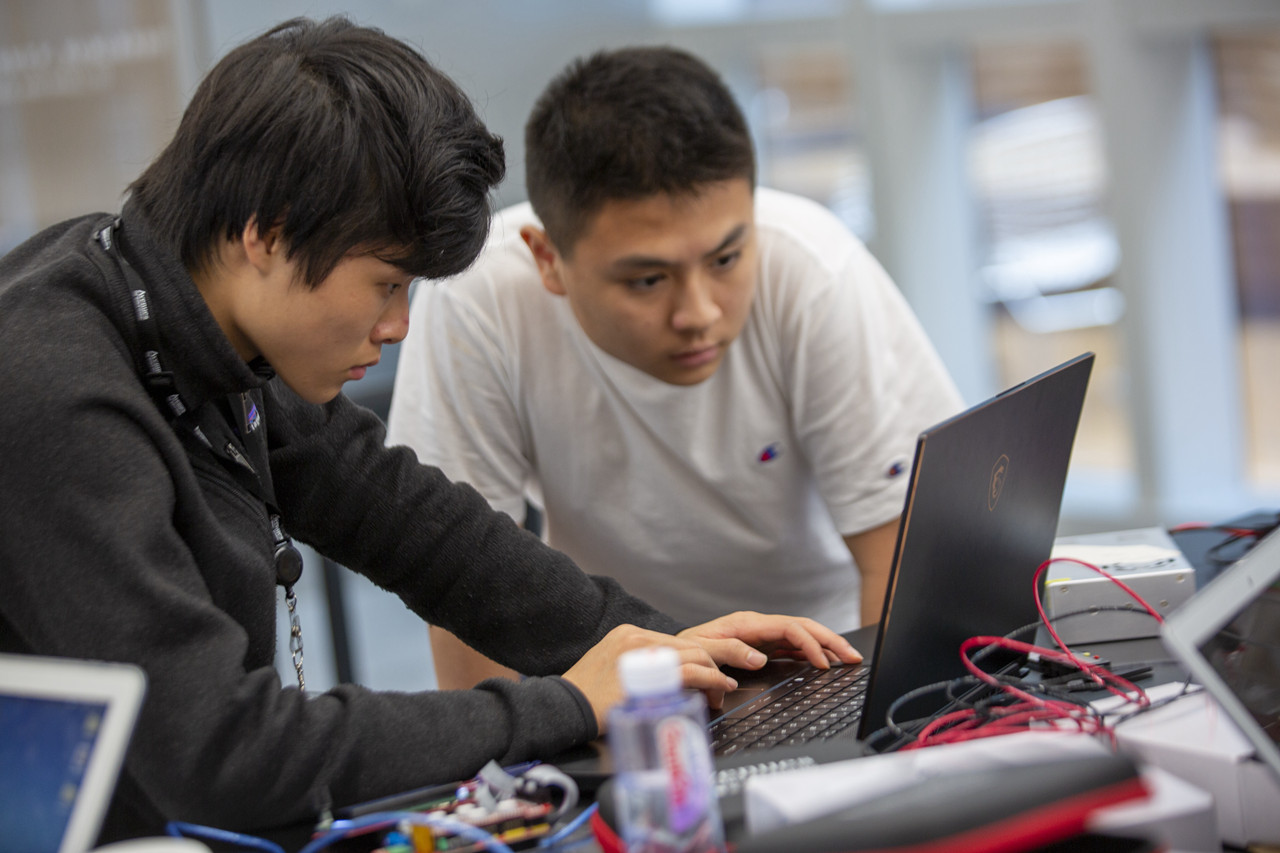Academic apprentice-learning program cultivates student makers
Writer: Wei Jie | Editor: Holly Wang | From: Shenzhen Daily | Updated: 2020-09-02

Two Shenzhen students work on their 3D-printer during the 2019 mastery academy summer camp in the city. Courtesy of Avenues Shenzhen
A pilot program that integrates a boarding high school and a maker space will be offered to senior high school students by an international school in Nanshan District.
Reminiscent of the 15th century Renaissance studios, The Avenues Mastery Academy in Innovation and Making is an academic apprentice-learning model in which selected students live and work side by side with teachers and expert makers in the final three years of their secondary schooling, according to Dr. Ted Faunce, head of The Avenues Shenzhen, at a forum on international education in the face of future uncertainty in Nanshan District over the weekend.
Faunce said that the world has undergone tremendous changes in almost all aspects, such as economic activities and family life, over the past eight months due to the global COVID-19 pandemic.
One way to face the uncertainty is to develop certain skills that have the power to adapt to the social changes, and innovation is one of the skills, he said.
The introduction of the mastery academy at The Avenues Shenzhen is a localization move of an international school in Shenzhen, a city with abundant maker resources that enjoys fame among makers around the world.
“Shenzhen has nurtured a maker’s culture that encourages innovation and entrepreneurship, and that has produced fruitful results economically,” said Li Zexiang, a professor with the Hong Kong University of Science and Technology (HKUST) and the mentor of Wang Tao, founder of the Shenzhen-based drone giant DJI.
Li shared at the forum the different student feedbacks of exam-oriented teaching and the project-based learning in his class at HKUST.
He said the students were reluctant to show up at his class when he applied the conventional teaching method: force-feeding them knowledge.
However, his students became more focused and motivated after Li introduced the project-based learning in class.
“I simply let them focus on their interests. The interest-driven students worked really hard yet they enjoyed it,” he said.
Before The Avenues Shenzhen introduced the pilot program, it had organized the mastery academy summer camp for three consecutive years. A few dozen senior-high students from around the world were selected to work on a project of their interest with professional makers in Shenzhen.
Katie Wang, a local teenager among the 15 students mostly from Avenues New York of the United States and Avenues San Paulo in Brazil that participated in the 2019 summer camp, said the project had been really inspiring.
The 15 students, divided into two groups, were required to design and produce their own 3-D printer with the given budget at the five-week summer camp.
Led by professional makers as their mentors, the students visited many local hardware shops for the materials they needed for the printer and manufacturing studios.
She said it taught her how to identify a problem, how to solve the problem, and how to work effectively with her peers of different cultural backgrounds. “It prepared me for my college life,” she said.
Wang has been admitted to an overseas university.
The program has been designed to inspire innovation through project-based learning, said Faunce, who was head of Hong Kong’s Chinese International School where generations of the Hong Kong Special Administrative Region’s richest and most influential families have been educated.